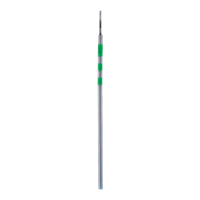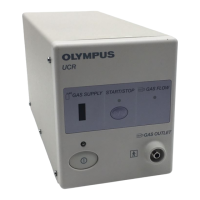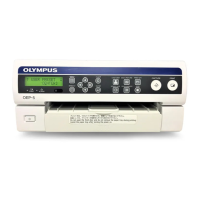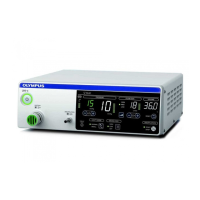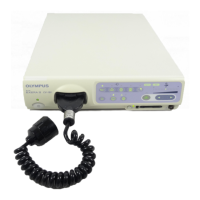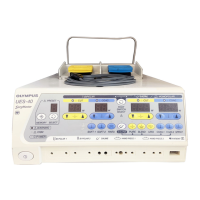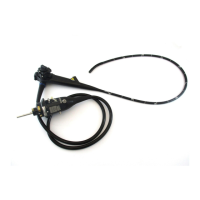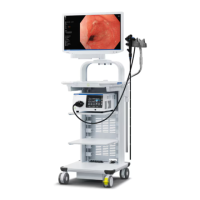Chapter 7 Cleaning, Disinfection and Sterilization Procedures for Endoscopic Instruments
65
VISERA RHINO-LARYNGO VIDEOSCOPE ENF-V2
7.8 Rinsing and drying after disinfection
• Carefully dry the electrical contacts of the video connector
after performing the procedure described in this section.
Otherwise, equipment damage can result.
• Disinfectant solutions may contain various aggressive
compounds (e.g. chlorine) which damage the instrument by
corrosion. To remove all residuals, rinse the instrument
thoroughly with de-ionized water (Aq. Dest.). Do not use tap
water for rinsing because it might be chlorinated.
• Regarding the rinsing water quality, refer to Section 6.5,
“Rinsing water” on page 40.
After disinfection, rinse the endoscope according to the procedures described
below.
Equipment needed
Prepare the following equipment and wear appropriate personal protective
equipment.
• On an assumption that the instruments will be used for a
patient directly after this process, the equipment and water
for rinsing must be sterile.
• Do not reuse rinsing water.
• Sterile, small container
• Personal protective equipment
• Sterile, lint-free cloths
• Sterile, large basin
• Sterile water (for sterile water rinse)
• De-ionized water (Aq. Dest.)
• 70% ethyl alcohol
• Sterile cotton swab
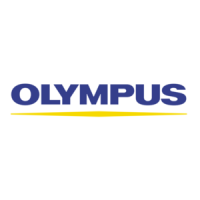
